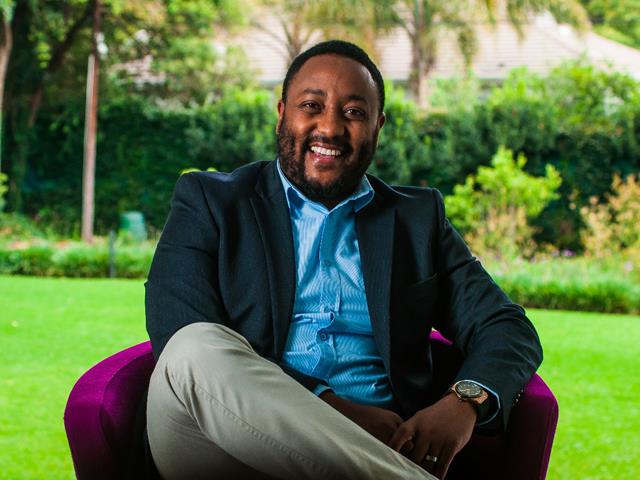All signs point to Africa as the most extraordinary place to be and do business in the future. So, how are we going to do business?
This is the question posed by Musa Kalenga, the enthusiastic entrepreneur and strategist who was named one of the Top 200 young South Africans by Mail & Guardian, at a recent Entrepreneurship To The Point Session hosted by Property Point, the Growthpoint Properties initiative.

The answer to doing business that he offers entrepreneurs, even in this digital age, is humanity.
“Humanity is the new black; it is how we are going to be the next powerhouse of this globe,” says Kalenga. “Being human is the one thing that will enable us to survive in the age of augmentation.”
Kalenga is obsessed with using technology to empower the digitally invisible. “We can send people to the moon but we can’t feed people on earth? This is a problem, because unless we’re making fundamental business model changes, we won’t have a market for the future.”
He took the Entrepreneurship To The Point audience on a journey, highlighting the sweet spot where technology and creativity merge.
Looking at how African entrepreneurs should respond to the age of augmentation, he uses the shocking November 2015 Paris attacks as an example. Facebook activated its Safety Check function, Uber alerted its drivers to take people to safety, and Airbnb operators took in anyone in need.
“While these are tech businesses at their core, they displayed decidedly human responses. They also didn’t have to redo their business model to respond in a more human way,” points out Kalenga. “The technology journey that communities and consumers have to go through must match ours as brand creators, value seekers and entrepreneurs.”
Doing this is simpler than you may think. Technology’s intersection with humanity is all about finding simple, meaningful solutions.
He points to the trend of impact investment – an approach taken by some of the world’s richest family businesses. Impact investment means finding opportunities that are solving human-centred problems and creating value for the humans that we seek to serve, and then figuring out how to make revenue as a business. Essentially, it puts doing good before making money. This is where humanity, technology and entrepreneurship are on course to meet and power the extraordinary future of business in Africa.
“Human beings are at the top of the food chain because we can understand a small and simple thing, then develop it for different purposes all the time. Also, because we can rally around common cause and purpose. Enhancing quality of life in the way people experience technology is key to continuing to solve problems, not only in Africa but across the globe,” says Kalenga.








